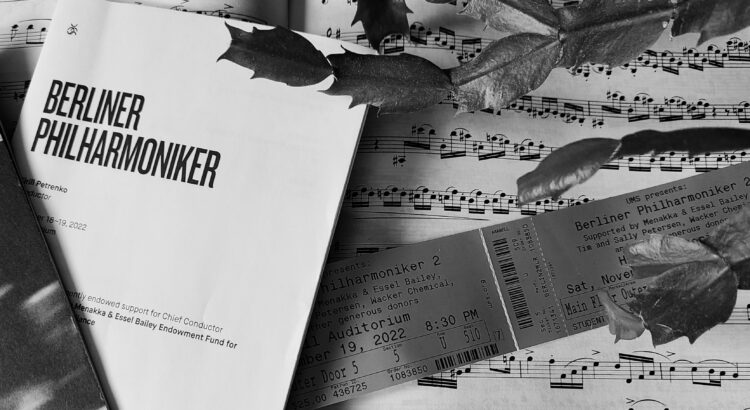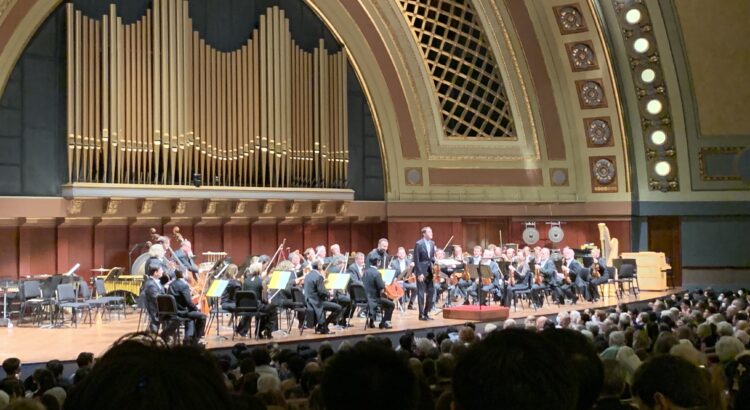8:30pm • Saturday, November 19, 2022 • Hill Auditorium
Seeing the Berlin Philharmonic perform Mahler’s Symphony No. 7 on Saturday night was nostalgic for me, despite never having seen them perform previously. Back in early September, I vaguely recognized the name of the orchestra on the UMS season schedule as one of my younger brother’s favorites. He is still in high school, and lives several hours away, but when I texted him that the Berlin Philharmonic was coming to Ann Arbor, he flew into action coordinating travel plans with our parents while I bought us two student tickets. This weekend, he and my parents drove through blizzards down from northern Michigan to see the performance and kick off Thanksgiving break.
On the night of the performance, my brother and I waited anxiously in the crowded lobby of Hill Auditorium for the doors to open, and in our seats we people-watched together, with a particular eye to the eccentric winter gear of some of the older patrons. During the performance, we excitedly nudged one another whenever we heard a flute (his instrument) or clarinet (mine) playing solos, and we both fangirled obsessively over the showy flutter-tonguing of the flute in the fourth movement.
I am not an expert in music, orchestras, arranging, or conducting, but this performance was captivating for me because of the way live music engages my imagination, eases the flow of my thoughts in new directions, and awakens moments from my past to be interpreted in new ways. I have read that Symphony No. 7 seeks to represent the transition from night to day, drawing from nature. There were moments where the music made me think of a slumbering hive of honeybees beginning to stir, or the midnight walk of a lone coyote across moonlit snow. At intervals, I drifted into memories of my childhood, time spent listening to and playing my own music. Listening to the Berlin Philharmonic flow through the symphony’s five movements became a process of listening for the memories evoked by each melody.
Seeing the Berlin Philharmonic perform reminded me of music and artistry as a common thread weaving throughout my life, connecting me with my family and my memories. It also reminded me to be grateful for the advantages afforded my by attending a school like the University of Michigan, and the privilege of being able to share the arts here with my family. The performance helped me reconnect with the joy that comes with experiencing music, and my first evening upon returning home for Thanksgiving break saw me digging my old etude books out from among my mom’s stacks of piano music and brushing the dust off of my clarinet case.





